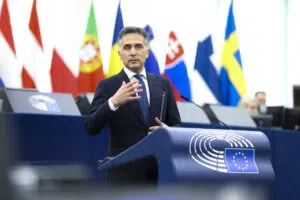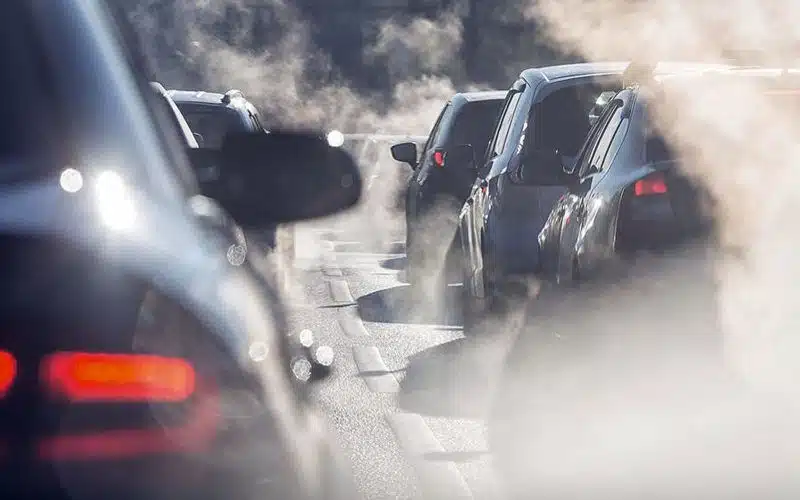From the correspondent in Strasbourg – No surprises, the vote staged today (March 13) in the Strasbourg plenary on the new Euro 7 standards to reduce pollutant emissions and set battery life requirements for cars, vans, buses and trucks followed an almost already written script, after the political wrangling that punctuated the past year, between majority splits in the EU Parliament and understandings in the council to scupper the major ambitions of the new Regulation. With 297 votes in favour, 190 against and 37 abstentions, MEPs meeting in plenary session gave the green light to a compromise with Council negotiators that had already watered down the European Commission’s initial thrust.
The Euro 7 Regulation brings together under the same legislation the previously separate standards for cars and vans (Euro 6) and trucks and buses (Euro VI). According to the agreement confirmed by MEPs, the current Euro 6 exhaust emission standards for cars and vans remain in place, circumscribing the squeeze to polluting particles derived from batteries and tyres. This limits the emission of solid particles with a diameter as small as 10 nm (PN10) instead of 23 nm as in Euro 6. A tighter grip on pollutants (including those not regulated in Euro VI, such as nitrous oxide N2O) for buses and heavy trucks. Regarding limits for braking emissions, the text defines a specific limit of 3 mg/km in the standard driving cycle for pure electric vehicles and 7 mg/km for all other powertrains, with specific limits for heavy-duty vans (5 mg/km for pure electric vehicles and 11 mg/km for other powertrains).
Stricter durability requirements have been introduced for all vehicles, in terms of mileage and life, which now increases to 200 thousand kilometres or ten years for cars and vans. Under what the co-legislators agreed to in late 2023, the timeline for implementation dates after the Euro 7 Regulation comes into effect is lengthened. Within 30 months for new types of cars and vans (42 months for new vehicles), 48 months for new types of buses, trucks, and trailers (60 months for new vehicles), 30 months for new systems, components, or technical entities to be fitted to cars and vans, and 48 months for those to be fitted to buses, trucks, and trailers. “The implementation timeframes will allow the automotive industry to adapt, not eating away at the conditions on which it has built its innovation and innovativeness over the years,” Forza Italia MEP Massimiliano Salini made clear in his remarks to the plenary.

The rapporteur for the EU Parliament on the Euro 7 Regulation, Alexandr Vondra (ECR), called today’s vote “a milestone for the automotive sector,” although he was keen to point out that “I opposed the initial commission proposal because of concerns about the potential impact on industry and consumers; it would have increased production costs and small car prices.” So, as happened in November 2023 for the approval of the negotiating mandate, support for the final text was secured by the right-wing alternative majority (as opposed to the so-called “Ursula” majority) composed of the European People’s Party (EPP), Renew Europe, European Conservatives and Reformists, and Identity and Democracy (Id) groups.
The Italian governing parties (Fratelli d’Italia, Lega, Forza Italia) are aligned on another issue: the recognition of biofuels and the stop on thermal engines from 2035. However, it should be remembered that the Euro 7 Regulation does not directly affect emissions from fuels in cars and vans if they are separate measures that consider different pollutants. “It is unfortunate that the definition of fuel neutrality, a pillar of the battle we are waging for technological neutrality, is not recognized,” added Forza Italia’s MEP Salini in his speech, “It never happened in Europe that innovation and sustainability were guaranteed by a single technology, imposed from above by law.” Even more outspoken was the head of the Lega’s delegation to the European Parliament, Marco Campomenosi: “We did not have the courage or the numbers; I hope that in the next legislature, we can open up to biofuels because here the big issue is the choice to give up technological neutrality and move toward forced electrification.”
English version by the Translation Service of Withub




